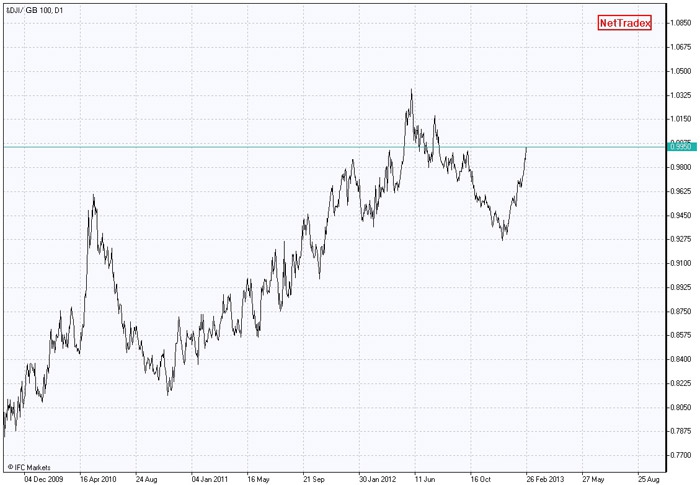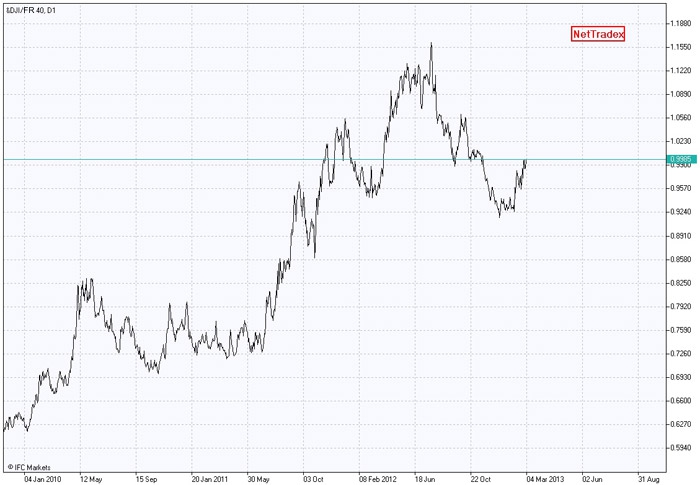- IFC Markets 이노베이션
- PCI 적용 관련 기사
- 트레이딩의 새로운 지평선
Portfolio Trading Method – Expanding the Range of Trading Instruments
For many traders, engaged in active trading in financial markets, the availability of a large number of trading instruments is very important. If a trader has worked out a trading system (mechanical or visual, based on the recognition of some iterative graphical images) the more instruments are available, the more frequently there may arise opportunities to enter the market.
New Opportunities for Traders
In this article I would like to briefly tell you about a new functional called Portfolio Quoting Method (PQM), which allows traders to considerably expand the range of trading instruments, to create other, absolutely new trading assets and even portfolios of assets from already existing list of trading instruments. The functional mentioned above has become available in the latest version of the trading-analytical platform NetTradeX.
Uniqueness of the Method
PQM method is an innovative market analysis method by means of which you can create asset portfolios from a variety of financial instruments available on the platform and determine the price of one portfolio relative to the price of another one, thus creating a new and unique synthetic instrument (PCI). The ideology of the method is based on the conception of the traded pair relation B/Q, adopted in Forex market, where the asset B (the base) is traded against the asset Q (the quoted). And it is possible to form both a very simple structured composite instrument, when each portfolio consists of one asset, and a very complex one with a wide range of assets in each of the portfolios. The program allows to set a specific weight to each of the assets in the overall structure. The prices of all assets are automatically calculated in US dollars (if they are expressed in another currency), which allows to correctly compare both portfolios with each other. The chart building on the basis of the previously created PCI takes no more than two minutes.
Example of Appliance
Let us give a concrete example of how to apply PCI for selecting new trading instruments. In the list of instruments in use there are CFDs on Stock Indices of the USA (DJI), of European countries, such as England
(GB 100) and France (FR 40). We can trade an index directly as well as build a chart reflecting changing relation between the indices and trade with that relation. In the charts presented below we have derived the relation of DJI against GB 100
and DJI against FR 40.
The prices of all indices have been equaled to 100 000 US dollars.
From a fundamental point of view, the stronger the economy of the country is, the more stable and better its stock index should be, compared with a weaker economy.
This hypothesis is confirmed by the charts presented. A stable upward trend is observed on the relation of DJI against the European indices, which is interrupted by rare but rather deep corrections (15-20%). This analysis can well be used as a trading idea, by buying DJI and simultaneously selling any of the European indices, and probably increasing positions on strong corrections.
The fundamental analysis should certainly be reinforced by the technical analysis, and NetTradeX possesses an arsenal of all necessary means. The movement on both charts takes place quite synchronously, which allows to determine trend continuation or possible correction at earlier stages. At the beginning of 2013 on both charts some reversal patterns emerged, very similar to “head and shoulders”, which signaled about long positions to be closed.
So, the fundamental approach in combination with the abilities of the technical analysis leads to a better understanding of portfolio behavior and explanation of the relationships between various asset combinations. In this regard, PCI, developed on the platform NetTradeX, is a very effective instrument for people, engaged in active trading.


OLDER_GEVORKO_SECRETS
- The Exchange Rate and the Creation of New Financial Instruments on its Base
- Profiting in bear and bull oil markets
- Currency indices: unveiling central banks’ secrets
- Pair Trading with Inverse Spread: 3 Steps
- Portfolio Quoting Method – New Ways for Analysis of Financial Markets
- Portfolio Quoting Method - New Trading Strategies
